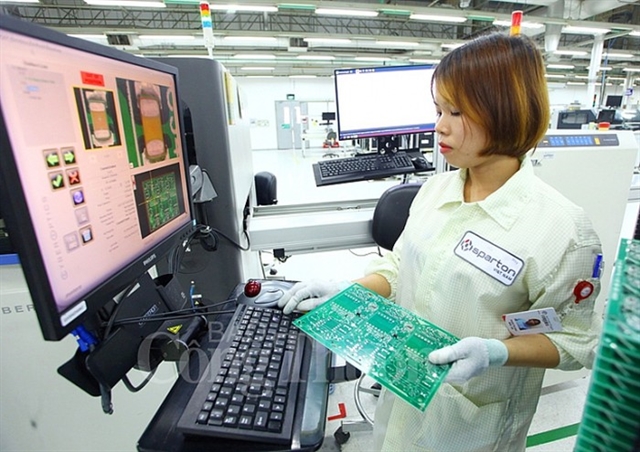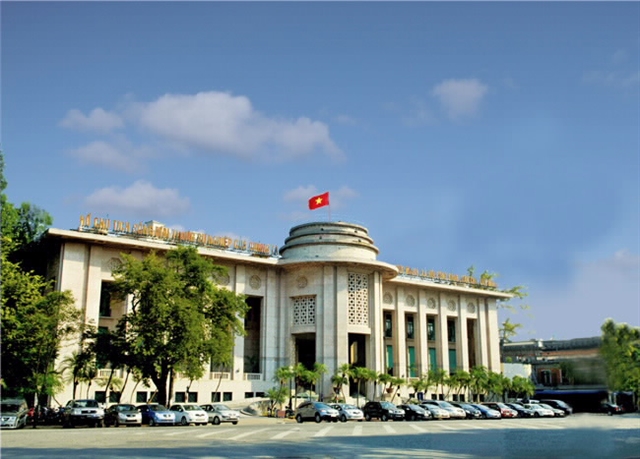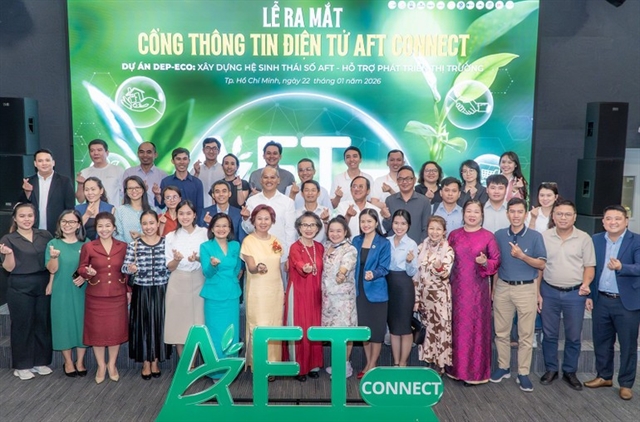 Economy
Economy


|
| Electronics components being manufactured at a factory in Bình Dương Province. Photo baobinhduong.vn |
HÀ NỘI -- The southern province of Bình Dương is facilitating the development of supporting industries in order to meet local production needs and reduce reliance on imports, according to the provincial Department of Industry and Trade.
Supporting industries not only played a very important role in the industrial development process but also helped improve the added-value and competitiveness of major industrial products, the department’s director Nguyễn Văn Dành told online newspaper congthuong.vn.
Bình Dương Province has formed industries producing materials for garment and textile, leather and footwear and components for engineering, machinery and equipment as well as electronic sectors. That helped to increase the localisation ratio for industrial products while reducing dependence on imported materials, Dành said.
Statistics from the department revealed that the province is now home to 2,277 businesses involved in support industries, including 442 in the garment and textile sector, 172 in leather and footwear, 953 in wood processing and 710 engineering firms.
According to Bình Dương People's Committee’s vice chairman Mai Hùng Dũng, the province will continue to improve the investment environment and encourage the development of each group of supporting industry products.
It will also focus on establishing industrial zones and clusters to produce spare parts and components for industries, and support small- and medium-sized enterprises to participate in the production of supporting products.
The committee has issued a decision on the list of investment priorities for socio-economic infrastructure development during the 2017-21 period including infrastructure for supporting industries. Earlier, the province had developed a 1,000-ha zone in Bầu Bàng District to call for more investment in supporting industries.
In addition, the province will build a system of technical standards for product quality according to international standards, provide support for businesses in research and development, and promote technology transfer. Strengthening co-operation with associations to understand business needs would be also included.
The department will also co-ordinate with management boards of industrial zones to organise goods supply-demand connection programmes in order to create favourable conditions for supporting industry businesses to meet domestic and foreign partners, exchange information and share experience so that they can join global supply chains. -- VNS




